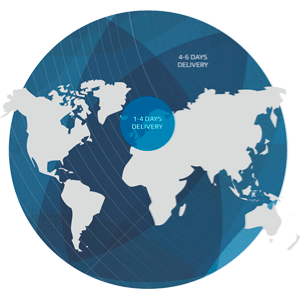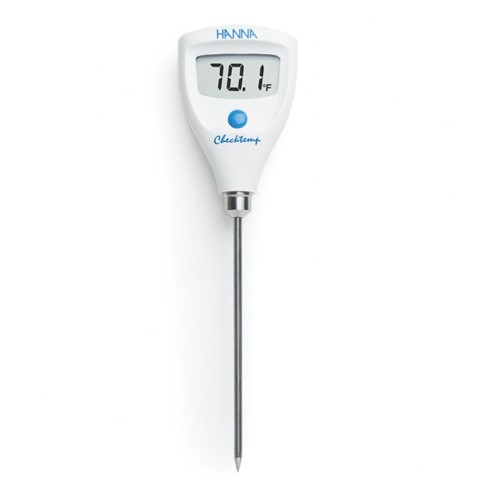Coffee lovers warned of 'challenging year' as prices hit half-century high

On Wednesday, November 27, exchange prices for Arabica coffee reached a record since 1977 — the cost of March futures was $7.05 per kg. The price of another popular coffee variety, Robusta, also rose. On Monday, November 25, the cost of January futures for its purchase on the ICE exchange rose to a historical record of $5.3 thousand per ton. Thus, the exchange price of Robusta coffee has more than doubled over the past 12 months, Arabica has risen in price by 80%.
The record price increase for Arabica is not a unique case in history, says Ramaz Chanturia, CEO of the Roschaikofe Association. According to him, peak values for Arabica, comparable to today's, were already in 2011. "As a rule, prices reach high values once every ten years and then decrease. But if earlier, with the high cost of Arabica, the price of Robusta increased insignificantly, now the cost of Robusta has increased more than twice over the past year - this has never happened before," Chanturia says.
What is the reason for the sharp rise in coffee prices, will prices rise next year, and will consumption in Russia decrease? This is in the RBC article.
Why has coffee become more expensive?Coffee is grown in 40 countries, but more than half of the world's production comes from Brazil (40%) and Vietnam (20%), says Chanturia. These two countries effectively control the world market . Almost all the coffee sold in Russia is made from coffee beans grown in Brazil and Vietnam.
There are two coffee varieties in the world that are important for international trade: Arabica (Coffea Arabica) and Robusta (Coffea canephora), Chanturia explains. This year, one of the key coffee regions of Vietnam, the largest producer of Robusta, was first hit by dry weather at the beginning of the growing season, and then by a typhoon during the harvest . Brazil, the main supplier of Arabica, was hit by drought. Unfavorable weather conditions could lead to a decrease in the harvest this season, which has resulted in Arabica prices rising amid fears of a shortage. The crop failure in Vietnam, in turn, has triggered a rise in Robusta prices, noted Andrey Savinov, founder of the domestic coffee trader SFT Trading.
In addition to the crop failure, there are a number of other reasons for the rise in coffee prices, Chanturia believes. Firstly, the demand for coffee exceeds supply. The popularity of this drink has grown all over the world over the past few years, and production cannot keep up with this growth. Secondly, forecasts for the new coffee harvest in Brazil and Vietnam are not optimistic, and stock speculators like to play on a negative background, notes the CEO of Roschaikofe. Purchase prices for coffee have increased against the background of speculation on the stock exchange due to the abnormal drought, the press service of the Doubleby coffee shop chain agreed. They added that additional pressure on prices arose due to the dollar exchange rate - it directly affects the purchase prices of ingredients for coffee drinks.
The exchange primarily affects commercial coffee from Brazil (that is, coffee made from low-quality Arabica), explains Tasty Coffee PR Director Ekaterina Gorina. Other supplier countries are also revising their prices with an eye on it. Microlots — high-quality coffee with a unique taste — are not so strongly affected by exchange prices, although farmers also focus on the exchange when concluding new contracts, Gorina adds. According to her, this means that the gap in prices between basic coffee and specialty (high-quality Arabica coffee — ) will be reduced.
Thirdly, global inflation , which began during the COVID-19 pandemic , leads to an increase in the cost of growing, shipping and producing coffee, Chanturia continues.
"In view of these factors, the next year will be a big test for coffee lovers in Russia, because prices are constantly being recalculated. Everyone is trying to reach a new level of economically justified cost," warns the CEO of Roschaikofe.
Will coffee shop prices rise again?The latest sharp increase in the price of coffee on the exchange will not be reflected in retail immediately, says Sergei Rumyantsev, founder of One Price Coffee. Large domestic producers and roasters buy coffee beans under long-term contracts. For now, coffee shops are using old stocks bought at the previous price, but the remains of cheap coffee are small, warns Rumyantsev. New contracts for the supply of coffee beans, according to Chanturia, are already concluded at higher prices. The weakening of the ruble against the dollar also has an additional impact, since coffee is a foreign currency commodity, Rumyantsev continues. According to him, these factors may affect the cost of the popular drink "in the coming weeks."
Contracted coffee will arrive at new prices over the next three to six months, notes Gorina from Tasty Coffee. There are no prerequisites for a serious change in prices until the next harvest in the summer of 2025, believes Dmitry Pletnev, CEO of Coffee Like. “Coffee is unlikely to be as cheap as before,” warns Gorina.
The Doubleby coffee shop chain says that the increase in prices for raw materials on the exchange is not yet critical for them. "We fix prices once a season for each region that produces coffee, and then we work on this raw material for a year," explains Alexey Kugayenko, head of the Doubleby coffee department. According to him, the effect of the price increase will be delayed. "For example, we will feel the increase in coffee prices in Brazil in March 2025, in Africa - in July. Perhaps, by the time we need to fix the price for other regions, the exchange will have dropped, but it is unlikely to be much," Kugayenko points out.
Those companies that buy coffee on the Russian market will face a rise in prices for green coffee much earlier, the head of the Doubleby coffee business stipulates. The increase in price, in his opinion, will be significant, since importers will work ahead of the curve and raise prices for coffee purchased under old contracts. Otherwise, they simply will not be able to afford to ensure new purchases.
On average, the increase in coffee prices for consumers compared to last year was 15-20%, estimates Kugayenko. A massive increase in prices occurred this summer: then in the segment of Moscow specialty coffee (that is, coffee of the highest quality), prices for drinks increased within 15-30 rubles, added the press service of Doubleby. But in the lower and middle segments, the price increase was felt more strongly. According to Gorina from Tasty Coffee, in retail the drink has increased in price by an average of 30% over the past year, and next year prices may increase by the same amount.
Whether there will be a price increase this time depends on the financial model of the coffee shops, they say at Doubleby: “Some will be able to move, some will decide to change their coffee blends to cheaper ones, and some will be forced to raise the price of drinks.” Establishments can change the type of beans, but there is a risk that this could lead to a massive deterioration in quality and taste, warns a representative of the Shokoladnitsa Group of Companies. The company itself, which has its own coffee roasting production, intends to try to maintain current prices at least until the end of the contract for the supply of raw materials - in June 2025, they added at Shokoladnitsa. “Consumers are not ready for such a sharp increase in prices for daily consumption,” the company believes.
Will consumers give up coffee?Against the backdrop of rising coffee prices, consumers may reduce the frequency of their purchases of this drink next year, but will not give it up completely, Chanturia suggests. Demand may grow for alternatives - coffee drinks based on chicory or cereals, as well as classic tea, the expert suggested.
The rise in coffee prices will not result in a significant reduction in consumption of this drink, since people give it up last, agreed Rumyantsev from One Price Coffee. “Starting your day with a visit to a coffee shop is a fundamental ritual, an affordable luxury,” added DoubleBee.
According to the founder of One Price Coffee, a cup of coffee in Moscow currently costs between 100 and 800 rubles. Most likely, consumers will look for places where they can buy the drink cheaper and choose it rationally, the expert believes. A potential price increase of another 15-30 rubles will not have a dramatic effect on attendance, DoubleB believes.
Tasty Coffee has not yet seen any change in customer preferences — there is no redistribution in favor of cheaper varieties. The general increase in the population's income will allow maintaining consumption at the current level, Coffee Like is optimistic.
Read RBC on Telegram .




























































